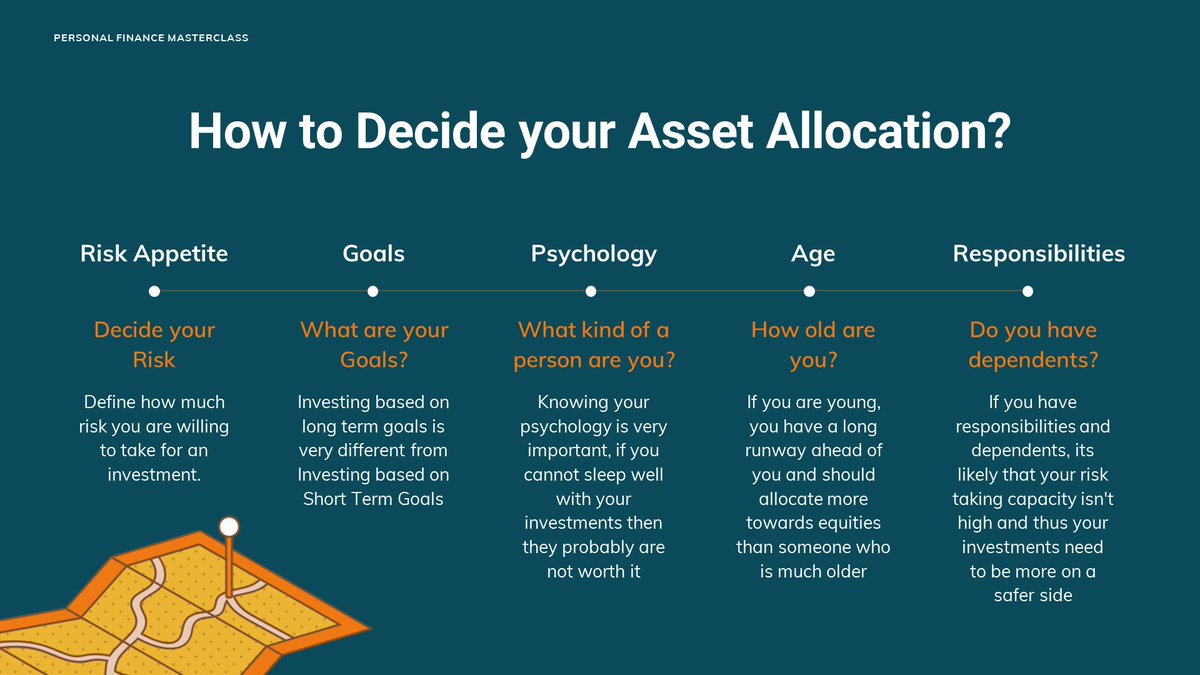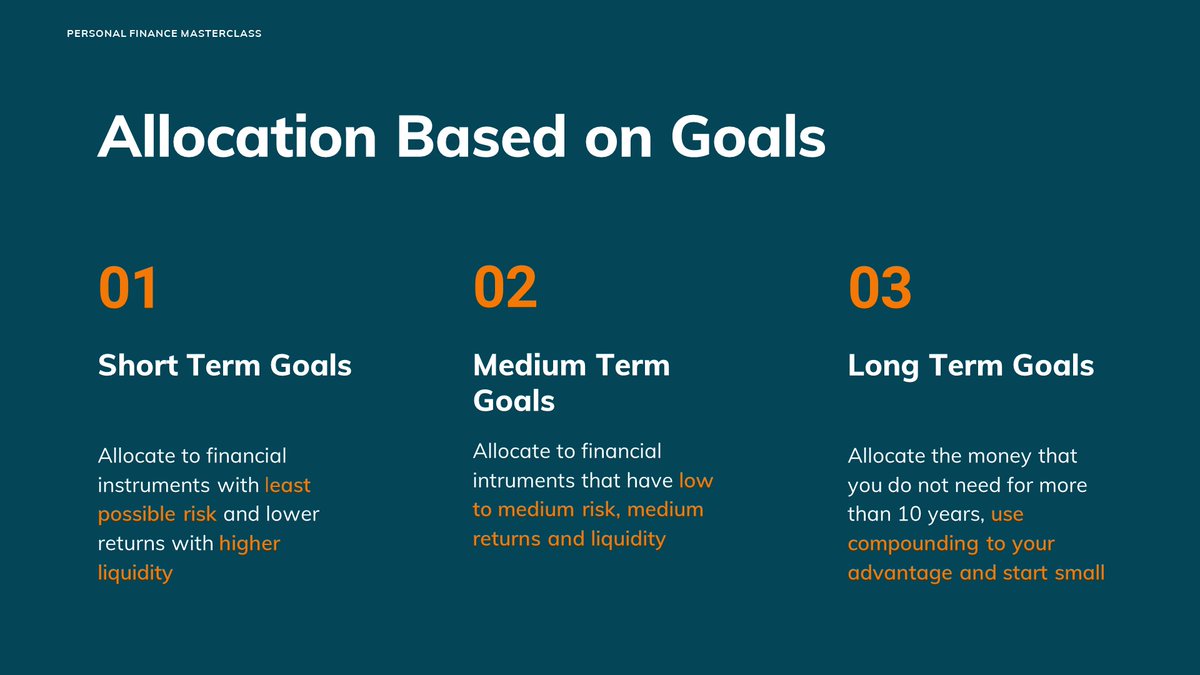Young
Right out of College
Doesn't Need Money for Next 10 years
Doesn't Have any Dependents
should be allocated more towards Equities than someone who is
Old
Heading for Retirement
Needs Consistent Income
Has Many Dependents
2/n

Greatest challenge in the bull market is sound asset allocation which I have been facing alot. Want to buy super fundamentals cos. but can't buy em call. Latter is cos. % allocation in your portfolio.
— Amrit (@HeyAmrit) July 23, 2021
Can you'll shed light@connectgurmeet @Investor_Mohit @itsTarH @AnyBodyCanFly

I am quite different from your style. I follow the market's volatility very closely. I have mock positions in 7-8 different strategies which allows me to stay connected. Whichever gives best profit is usually the one i trade in.
— Sarang Sood (@SarangSood) August 13, 2019
Anilji most of the time these days Theta only falls when market moves. So the Theta actually falls where market has moved to, not where our position was in the first place. By shifting we can come close to capturing the Theta fall but not always.
— Sarang Sood (@SarangSood) June 24, 2019
This week has been great so far. The main aim is to be in the right side of the volatility, rest the market will reward.
— Sarang Sood (@SarangSood) July 3, 2019
There is a difference between theta decay & fall in vega. Decay is certain but there is no guaranteed profit as delta moves can increase cost. Fall in vega on the other hand is backed by a powerful force that sells options and gives handsome returns. Our job is to identify them.
— Sarang Sood (@SarangSood) February 12, 2020